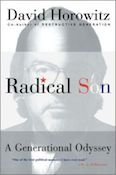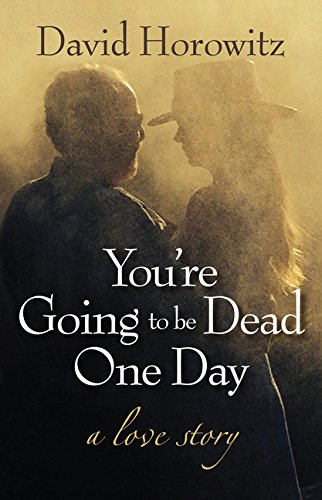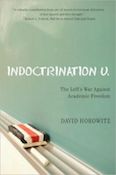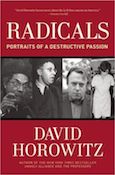Radical Son: A Generational Odyssey
David Horowitz’s warmly human and abrasive memoir, ”Radical Son,” carries on its jacket the phrase ”A Generational Odyssey.” As with the rest of this fine autobiography, the choice of phrase is artful. Born in New York City in 1939, the child of Communist parents, Mr. Horowitz moved to England after attending Columbia and Berkeley, drawn by the quality of Marxist intellectual life. There, he completed ”The Free World Colossus,” which he calls here ”the first account of the cold war written from a New Left perspective,” a book whose toxic impact on attitudes toward anti-Communism and containment Mr. Horowitz now regards as pernicious. After the book came out he was approached by a Russian agent to spy for the Soviet Union. Back in Berkeley in 1968, he joined the New Left’s leading magazine, Ramparts, and later produced (with Peter Collier, also of Ramparts) best-selling biographies of the Rockefeller, Kennedy and Ford families. He is now a so-called ”second thoughts” conservative, a militant foe of 60’s radicalism in its academic, entertainment and news-media strongholds.
Mr. Horowitz’s odyssey guides readers through the arcane and sometimes wacky customs, myths and taboos of the radical archipelago. We hear the siren songs that enchanted the author on his twisting and unforeseen path to reconciliation with patriotic and ”bourgeois” values. Along the way we meet, among many others, Isaac Deutscher, Bertrand Russell, Huey Newton, Bobby Seale, Tom Hayden, Eldridge Cleaver and Ronald Reagan.
Mr. Horowitz’s self-exploration is sensitive and involving, but his portrait of the 60’s and its legacy is certain to make this book controversial. It is Mr. Horowitz’s position that the received version of the decade as one dominated by idealistic protests against an immoral war and an unjust society — a version that has been absorbed by now into orthodox history and popular recollection — is a lie, a hoax sustained by a conspiracy of silence by the insiders who know the truth: in other words, a cover-up.
Mr. Horowitz describes his New Left cronies as a noxious tribe of yahoos who pelted one another with filth from the Stalinist sewers, all the while taking pleasure in memories of Tom Sawyer’s gang playing pirates, but in this case lets started flying around and real bodies started bobbing up in San Francisco Bay.
The dramatic climax of Mr. Horowitz’s story is the human tragedy that made him question and then reject his identity as a Marxist radical. When he joined Ramparts, the magazine was promoting the Black Panther Party ”as the new vanguard of the black struggle.” Mr. Horowitz himself was in thrall to the idea that ”blacks would replace the proletariat … as the Chosen People who were going to lead the rest of us to the Promised Land,” and he was working almost full time to help finance a free school run by the Panthers. One of his friends, another radical working for the school, disappeared, and Mr. Horowitz’s investigations led him to the chilling suspicion, later amply confirmed, that she had been executed on orders from the Black Panthers. The Panther party, he concluded, was little more than a front for racketeering, extortion and drug running.
After that, Mr. Horowitz began to believe that terroristic and totalitarian means were inseparable from socialism’s dream of a world freed from exploitation of man by man. ”Socialists believed that private property divided human beings, making some rich and some poor, some oppressors and others oppressed,” he writes. ”Private property was the root cause of social conflict. … But the abolition of property was really the abolition of private association and civil society, and of the bourgeois rights they underpinned. Socialist unity could only be achieved as a totalitarian solution.” That was the end of Mr. Horowitz’s radicalism, even though leaving the socialist dream ”was the same as leaving my own life.”
Too talented and intelligent to be cast down permanently by the collapse of his former certainties, Mr. Horowitz invented out of his own traumas a new way of writing family biography. The result was the pathbreaking account of the Rockefeller family, where he and Mr. Collier shrewdly pointed out that the Rockefellers shared with the left a sense of themselves ”as social missionaries whose task was to uplift humanity. Theirs was a kind of inverted radicalism.”
With ”Radical Son,” Mr. Horowitz has written a courageous book, full of self-revelation and with a willingness to expose his own frailties in the most sensitive ares of sex and family. Still, he is nothing if not contentious, and some of his contentions will rub readers the wrong way.
There is, for one thing, too much grousing about bad reviews. Mr. Horowitz has been around long enough to know that the only sane response to a hatchet job is to shrug it off (advice admittedly easier to give than to follow). His complaint that black hostility to Jews today shows ingratitude for Jewish efforts on behalf of civil rights is surprising: the black-maid, Jewish-mistress relationship that existed in his own house when he was growing up was statistically far more the norm than the black and Jewish arms that were linked on the protest line. It also seems disingenuous for Mr. Horowitz to complain that his former friends in the radical left show him little gratitude for pointing out the errors of their ways. What does he expect? Thank-you notes?
Mr. Horowitz now devotes himself to Heterodoxy, a Los Angeles-based tabloid that rakes the muck on the left in search of politically correct outrages, and he heads the Center for the Study of Popular Culture, which fans the sparks of conservatism in the entertainment industry. As in his Homeric model, he is back where he wants to be, reconciled to his country, his children and even his father. ”The revolutionary failures of the 20th century had demonstrated the wisdom of the American founding, and validated its tenets: private property, individual rights and a limited state,” he says. ”Becoming a conservative turned out, ultimately, to be a way of coming home.”
Book Review from The New York Times, by Richard Gid Powers
- The Author
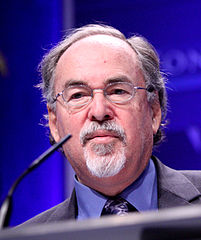
David Horowitz
David Horowitz is a lifelong civil rights activist and was a founder of the New Left movement in the 1960s. […] More about David Horowitz.
- Books by the Author
- Related Articles

How Can Trump’s Big League Agenda Save America? (Interview: David Horowitz)
How will Trump reshape America? Can his big league agenda save our country? We discussed this with David Horowitz, author[...]
Ratings Details




